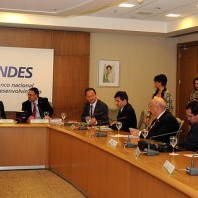The World Bank announced yesterday that it will support Bolivia until 2015 with more than US$250 million, which will go to rural development projects and highway improvements. Read the news article here in Spanish: La Razón / Willy Chipana / La Paz / 22 de diciembre de 2011
New report by Amazonian indigenous peoples exposes the reality of REDD+ in Peru and proposes solutions.
A new evaluation of a $1.3 billion World Bank development policy loan to promote sustainability reforms at the Brazilian National Bank for Economic and Social Development (BNDES) that questions the effectiveness of DPLs due to weaknesses in existing Bank policy guiding their design and execution. This brief calls for the reform of Bank DPL policy as an urgent part of the ongoing revision of World Bank safeguard policies to ensure consistent management of risk across all World Bank operations.
This update prepared by the Bank Information Center introduces the FCPF Readiness Package (R-Package) and the Carbon Fund (CF) operational.
The irregularity of the voluntary market of carbon credits is outpacing the environmental and legislative capacity of the country: irregular transfer of millions of hectares of forests as part of the market for carbon credits and other environmental services.
The workshop Oslo REDD Exchange 2011 was organized by Norway’s International Climate and Forest Initiative (NICFI) and the Norwegian Agency for Development Cooperation (Norad), on 23-24 June 2011.
It took many years to establish the World Bank’s operational policies that safeguard society and the environment, and are some of the world’s highest development standards. As the Bank reviews these policies, civil society is organizing efforts to present their concerns and expectations, and offer their inputs as to what the outcome of the review should be.
Makatar Diop, the director of Brazil responds to civil society about their inquiry on the transparency of the activity involving DPLs between the World Bank and BNDES.
The project will require an investment of some US$118mn, being financed to the tune of US$103mn by a World Bank loan and US$15mn in counterpart funding by the La Paz government.

